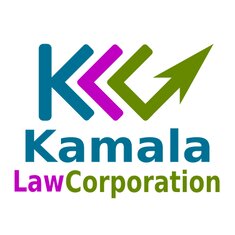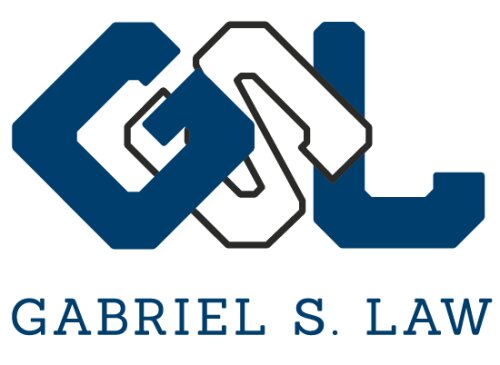Best Dependent Visa Lawyers in San Jose
Share your needs with us, get contacted by law firms.
Free. Takes 2 min.
List of the best lawyers in San Jose, United States
1. About Dependent Visa Law in San Jose, United States
Dependent visas cover spouses and unmarried children who accompany a primary nonimmigrant visa holder. In San Jose, a hub for technology employers, many families rely on these status options to stay together while one member works or studies. The dependent category you qualify for depends on the main visa holder’s status, such as H-1B, L-1, J-1, or F-1.
Key rules are federal and apply nationwide, including in San Jose and Silicon Valley. The primary visa holder must maintain valid status for dependents to maintain theirs. If the principal visa holder’s status ends or changes, dependents could face status changes as well.
Common San Jose dependent categories include H-4 for spouses and children of H-1B workers, L-2 for dependents of L-1 workers, J-2 for dependents of J-1 exchange visitors, and F-2 for dependents of F-1 students. Each category has distinct rights, especially around work authorization and study options.
According to federal guidance, dependents derive status from the principal nonimmigrant and may require separate filings to work or study in the United States. See government resources for specifics on each category.
For practical guidance, San Jose residents frequently consult an attorney to coordinate timing between the primary worker and dependents, manage work authorization filings, and align status with changing immigration policies. Resources from federal agencies outline the basics of each category and its responsibilities.
Useful reference point: federal pages explain dependent visa eligibility and procedures for H-4, L-2, J-2, and F-2 in more detail. USCIS H-4 EAD and USCIS L-2 visa provide category specifics; Travel.State.gov dependents overview explains consular processing and dependents’ options.
2. Why You May Need a Lawyer
Working with an experienced immigration attorney can clarify complex eligibility rules and prevent status gaps. The following real world scenarios common to San Jose families illustrate when legal counsel is especially valuable.
- H-4 dependent seeks work authorization after spouse secures H-1B status. A San Jose family relies on the H-1B worker at a local tech firm and wants the spouse to work. An attorney helps prepare the H-4 EAD filing, verifies eligibility, and coordinates any needed status extensions.
- L-2 dependent needs EAD after an L-1 transfer or renewal. In a Bay Area startup, an L-1A manager’s spouse wants to work. Legal counsel ensures the EAD application meets filing requirements and handles any changes to the principal’s L-1 status.
- J-2 dependent wants to work or pursue training in San Jose area institutions. A J-2 spouse may apply for EAD; an attorney helps with Form I-765, ensures maintenance of J-2 status, and navigates any school related visa considerations.
- Change of status from F-1 to a dependent category is needed due to life changes. If a San Jose student’s spouse changes job plans or studies, counsel can guide I-539 filings and ensure timing aligns with academic terms.
- Consular processing or visa stamping for dependents at a Bay Area consulate. An attorney coordinates DS forms, scheduling interviews at the San Francisco consulate and ensures all documents are in order to avoid delays.
- Denial, withdrawal, or status termination risks require a plan B. If the primary visa or income source is at risk, a lawyer helps preserve status, explore alternatives, and plan contingency filings.
Engaging a local attorney can reduce the chance of administrative errors and help you navigate backlogs. A knowledgeable solicitor or attorney can explain eligibility, filing options, and timelines tailored to your San Jose situation.
3. Local Laws Overview
In the United States, dependent visa rules are federal, but interpretation and processing happen through federal agencies with regional influence, including the Bay Area and San Jose. The following laws and regulations govern dependent visas at a national level and are relevant to residents of San Jose.
- Immigration and Nationality Act (INA), 8 U.S.C. § 1101(a)(15) and related sections. This statute defines nonimmigrant categories such as H, L, J, and F, and covers derivative dependents. Effective since the act was enacted and amended over decades.
- 8 C.F.R. Part 214.2 governs nonimmigrant classifications, including H-4, L-2, and J-2. These regulations provide technical filing and eligibility details applicable to San Jose applicants. ecfr.gov
- 8 C.F.R. 214.2(h) - H-4 and 8 C.F.R. 214.2(l) - L-2 work authorization provisions. These regulations outline work eligibility for certain dependents and the process to obtain employment authorization documents. ecfr.gov
Practical note: H-4 EAD and L-2 EAD are implemented through specific federal rules. See USCIS guidance for how to apply and what documents are required. USCIS H-4 EAD • USCIS L-2 visa.
Recent trends: Processing times for dependent status changes and EAD filings have fluctuated due to administrative backlogs and policy shifts. USCIS publishes current processing time ranges for I-539, I-765 and related forms, which vary by district. USCIS processing times.
4. Frequently Asked Questions
What is a Dependent Visa and who qualifies?
A dependent visa allows family members to accompany a nonimmigrant. Qualifying dependents typically include spouses and unmarried children under 21. Eligibility depends on the principal visa category and specific regulations.
How do I apply for H-4 EAD in San Jose?
You apply by filing Form I-765 with USCIS, after meeting H-4 eligibility criteria. The principal must hold valid H-1B status or be in a category that supports H-4 work authorization.
Do I need a lawyer for my L-2 EAD application?
A lawyer helps ensure the L-2 EAD filing is complete and correct, especially if your status or the principal’s status is complex. They can prepare supporting evidence and address any requests for additional information.
How long does it take to process H-4 EAD applications?
Processing times vary by USCIS field office and workload. USCIS provides current processing time estimates on its site, and backlogs can extend timelines beyond a few months.
Can L-2 dependents work in the United States?
Yes, L-2 dependents may obtain employment authorization if they qualify for an EAD. The EAD is issued under the L-2 visa framework and requires filing Form I-765.
What is the difference between H-4 and L-2 statuses?
H-4 depends on an H-1B primary; L-2 depends on an L-1 primary. Work authorization and eligibility differ between the two, with EAD available for certain dependents in both categories.
Do I need to file I-539 to extend dependent status?
If you remain in the United States and need to extend or change status, you may file Form I-539 to request a change or extension of nonimmigrant status. The need depends on your individual situation.
What costs are involved in dependent visa filings?
Costs vary by form and service. Common fees include filing fees for I-765, I-539, DS-160, and consular processing. A local attorney can provide a precise fee estimate based on your case.
What is the timeline for J-2 visa related processes?
J-2 dependents generally file for status or work authorization after the J-1 principal is in status. Timeline depends on consulate processing or change of status within the United States.
Is a premium processing option available for dependents?
Premium processing is generally not available for all dependent filings. Check current USCIS guidance for the specific form you filed, such as I-539 or I-765.
Can a dependent stay in the United States if the main visa holder loses status?
Dependent status usually depends on the principal holder maintaining valid status. A lawyer can explore options like changing to another nonimmigrant category or pursuing humanitarian remedies.
5. Additional Resources
- USCIS H-4 EAD - Employment eligibility for certain spouses of H-1B workers. https://www.uscis.gov/h-4-ead
- USCIS L-2 visa - Work authorization and status for L-2 dependents. https://www.uscis.gov/working-in-the-us/temporary-workers/l-2-visa
- Travel.State.gov: Dependents and visas - Department of State guidance on visas for family members, consular processing, and stamping. https://travel.state.gov/content/travel/en/us-visas/immigrate/dependents.html
6. Next Steps
- Identify your dependent visa category based on the principal’s visa (H-1B, L-1, J-1, or F-1) and confirm eligibility for work or study if relevant.
- Gather essential documents for all family members, including passports, current visas, I-94 records, marriage or birth certificates, and evidence of the principal’s status.
- Consult a San Jose immigration attorney to tailor a plan for your family’s filings, timelines, and potential work authorization options.
- Decide whether to file in the United States (I-539, I-765) or pursue consular processing, and collect the required forms and fees.
- Prepare and submit the necessary EAD applications if your dependent category allows work authorization, keeping track of receipt notices and processing times.
- Monitor status updates and respond to Request for Evidence (RFE) promptly to reduce delays.
- Plan for potential extensions or changes if the primary visa holder’s status changes, including possible status adjustments or redesigns of family immigration strategy.
Lawzana helps you find the best lawyers and law firms in San Jose through a curated and pre-screened list of qualified legal professionals. Our platform offers rankings and detailed profiles of attorneys and law firms, allowing you to compare based on practice areas, including Dependent Visa, experience, and client feedback.
Each profile includes a description of the firm's areas of practice, client reviews, team members and partners, year of establishment, spoken languages, office locations, contact information, social media presence, and any published articles or resources. Most firms on our platform speak English and are experienced in both local and international legal matters.
Get a quote from top-rated law firms in San Jose, United States — quickly, securely, and without unnecessary hassle.
Disclaimer:
The information provided on this page is for general informational purposes only and does not constitute legal advice. While we strive to ensure the accuracy and relevance of the content, legal information may change over time, and interpretations of the law can vary. You should always consult with a qualified legal professional for advice specific to your situation.
We disclaim all liability for actions taken or not taken based on the content of this page. If you believe any information is incorrect or outdated, please contact us, and we will review and update it where appropriate.










